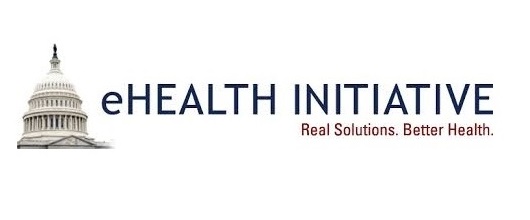 eHealth Initiative presented its key findings from their 11th annual survey of health data exchange on October 8, 2014 via webinar to over 230 participants. The four key findings from the survey reveal (1) cost and technical challenges are key barriers to interoperability; (2) regulatory policies appear to have prompted increased use of core health information exchange (HIE) services such as Direct, care summary exchange, and transitions of care; (3) advanced initiatives are supporting new payment and advanced care delivery models; and (4) sustainable organizations have replaced federal funding with revenue from fees and membership dues.
eHealth Initiative presented its key findings from their 11th annual survey of health data exchange on October 8, 2014 via webinar to over 230 participants. The four key findings from the survey reveal (1) cost and technical challenges are key barriers to interoperability; (2) regulatory policies appear to have prompted increased use of core health information exchange (HIE) services such as Direct, care summary exchange, and transitions of care; (3) advanced initiatives are supporting new payment and advanced care delivery models; and (4) sustainable organizations have replaced federal funding with revenue from fees and membership dues.
A panel of industry leaders representing different types of exchange entities shared their reactions to the survey findings. While the challenge of interoperability came as no surprise, panelists felt that technical and vendor challenges were a bigger barrier than cost. When it came to technical and vendor challenges, Kevin Stambaugh, Director of Physician e-Services at Intermountain Healthcare found it, “comforting to know that others are in same situation.”
Panelists also felt that the increased utilization of Direct, while encouraging, doesn’t tackle the bigger picture of data exchange and interoperability. Christina Galanis, Executive Director of Southern Tier HealthLink expressed surprise at the reliance of Direct to transport data. Providers dependence on Direct makes it, “harder to get them to the bigger table for exchanging data,” followed up Galanis.
Randy Farmer, Chief Operating Officer from the Delaware Health Information Network (DHIN) found it interesting since “the creation of a Continuity of Care Document (CCD) and the exchange summaries go hand-in-hand with interoperability.” Adds Farmer, “while there has been great increase in the adoption of secure messaging and use of Direct, it has not corresponded to the broad exchange of care summaries in the way it was envisioned.”
Panelists and webinar participants also felt that government needs to mandate and regulate standards. However, Cheryl Krampert, HIE Manager at Baycare Health System noted that while “data and content may be standard the usability may not be what the provider needs to see when it comes to treating the patient.”
While much of the discussion centered on interoperability, Dave Grinberg, Deputy Executive Director of the Pennsylvania eHealth Partnership Authority, said that he was “encouraged to see the stage advancement (of HIE) as well as the sustainability advancement.” He noted that the increased sustainability and use of care reform models demonstrates organizations are “really understanding that HIE is key to their success.”
As the HIE landscape continues to mature and evolve, so does the complexity of issues. The findings from the 2014 survey show the evolution of health data exchange over the years. Questions and discussion also revealed that next year’s survey is ready to delve deeper into specific exchange activities.
eHI has monitored the growth, development, use and sustainability of health information exchanges in the United States for 11 years. The key findings from the 2014 survey can be downloaded at the eHI website, www.ehidc.org.
eHealth Initiative thanks Medicity for its support disseminating this year’s survey findings.
About eHealth Initiative: eHealth Initiative (eHI) is a Washington D.C.-based, independent, non-profit organization whose mission is to drive improvements in the quality, safety, and efficiency of healthcare through information and information technology. eHI is the only national organization that represents all of the stakeholders in the healthcare industry. Working with its membership, eHI advocates for the use of health IT that is practical, sustainable and addresses stakeholder needs, particularly those of patients.www.ehidc.org.
